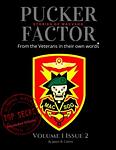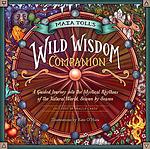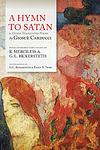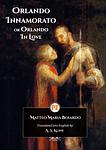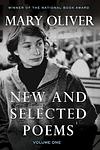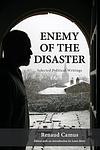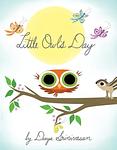The Greatest Italian Books of All Time
Click to learn how this list is calculated.
This list represents a comprehensive and trusted collection of the greatest books. Developed through a specialized algorithm, it brings together 284 'best of' book lists to form a definitive guide to the world's most acclaimed books. For those interested in how these books are chosen, additional details can be found on the rankings page.
Genres
Countries
Date Range
Reading Statistics
Click the button below to see how many of these books you've read!
Download
If you're interested in downloading this list as a CSV file for use in a spreadsheet application, you can easily do so by clicking the button below. Please note that to ensure a manageable file size and faster download, the CSV will include details for only the first 500 books.
Download-
101. The Book Of The Courtier by Baldassare Castiglione
This Renaissance classic is a seminal work on etiquette and courtly manners, presenting an idealized vision of the perfect gentleman and lady at the courts of Italy. Through a series of dialogues set over four evenings, the book explores the attributes of a well-rounded courtier, emphasizing skills such as martial arts, physical grace, and intellectual pursuits, alongside the importance of moral virtue and the art of conversation. The text also delves into the complex interplay of love, the role of women in court, and the philosophical underpinnings of what it means to live a noble life, ultimately providing a guide to the refined behavior expected in aristocratic circles of the time.
-
102. The Buried Harbour by Giuseppe Ungaretti
"The Buried Harbour" is a poetic exploration of memory, loss, and the passage of time, as the author delves into the depths of his past, unearthing the emotional landscapes of his experiences. Through a series of evocative poems, the reader is taken on a journey that navigates the complex waters of human existence, intertwining personal reflections with universal themes. The work serves as a metaphorical excavation of a hidden harbor, a place where the author's deepest thoughts and memories are anchored, revealing the enduring power of poetry to uncover the submerged truths of the soul.
-
103. Stories And Recollections by Umberto Saba
"Stories and Recollections" is a collection of autobiographical prose by an Italian writer, offering a window into the author's life and times. The book weaves together a series of personal anecdotes, reflections, and narratives that span the author's childhood, adolescence, and adulthood. Through these stories, the reader gains insight into the writer's Jewish heritage, his experiences in Trieste, and the broader cultural and historical context of early 20th-century Europe. The work is characterized by its intimate tone and the author's candid exploration of identity, family, and the complexities of human relationships.
-
104. Barbarian Odes by Giosué Carducci
"Barbarian Odes" is a collection of lyric poetry that celebrates the beauty of the Italian landscape, the richness of its history, and the poet's own personal experiences and emotions. The work is infused with classical references and a passionate spirit of nationalism, reflecting the poet's reverence for the ancient past and his aspirations for Italy's cultural and political rejuvenation. The odes are characterized by their bold, energetic style and their embrace of life's sensual pleasures, while also contemplating themes of love, nature, and the passage of time. This collection represents a significant contribution to the canon of Italian literature, blending the classical tradition with a modern sensibility.
-
105. Last Letters Of Jacopo Ortis by Ugo Foscolo
The book is a poignant epistolary novel that delves into the emotional turmoil of a young Italian intellectual, torn between his passionate love for a woman and his despair over the political situation in his homeland. As he grapples with unrequited love and the loss of his country's freedom following its annexation by a foreign power, the protagonist's letters reveal his deepening melancholy and his philosophical reflections on love, death, and patriotism. The novel, rich in its exploration of human emotions and national identity, ultimately leads to a tragic conclusion, reflecting the author's own disillusionment with the political climate of his time.
-
106. Maia by Gabriele D'Annunzio
"Maia" is a lyrical exploration of sensuality and artistic creation, following the journey of a young poet who becomes entranced by the beauty of a woman named Maia. As the poet becomes increasingly obsessed with his muse, he delves into a world of aesthetic pleasure and poetic inspiration, seeking to capture the essence of Maia's allure through his verses. The narrative weaves a tapestry of passion and beauty, reflecting on the nature of desire and the intertwining of life and art, ultimately questioning the boundaries between reality and the ideal, and the cost of artistic obsession.
-
107. Notebooks by Leonardo da Vinci
The book is a compilation of writings and sketches from one of history's most brilliant minds, offering a window into the intellectual pursuits and creative process of the Renaissance polymath. It encompasses a wide array of subjects, from anatomy to hydraulics, from painting to engineering, revealing the author's insatiable curiosity and his systematic approach to observation and inquiry. The collection is not only a testament to the author's genius but also a source of inspiration and insight into the fusion of art and science during the Renaissance period.
-
108. The Wine Dark Sea by Leonardo Sciascia
In "The Wine Dark Sea," readers are presented with a collection of short stories that delve into the complexities of Sicilian life, exploring themes of justice, truth, and the human condition. The narrative weaves through tales of ordinary people confronted with extraordinary situations, often involving crime and moral dilemmas. The author's sharp observations and subtle irony highlight the intricate relationship between the individual and the often-oppressive societal structures, painting a vivid picture of a land steeped in beauty and contradiction, where the line between right and wrong is as blurred as the horizon on the titular wine-dark sea.
-
109. Sonnets And Madrigals by Michelangelo Buonarroti
"Sonnets and Madrigals" is a collection of deeply personal and reflective poetry by one of the Renaissance's most iconic figures, known primarily for his monumental contributions to art and architecture. The poems reveal a lesser-known side of the artist's creative genius, exploring themes of love, beauty, spirituality, and human emotion. Through the structured elegance of sonnets and the lyrical flow of madrigals, the poet delves into the complexities of the human condition, offering insights into his own inner life and the intellectual currents of his time. The work stands as a testament to the multifaceted talent of an individual who could express profound ideas not only through visual mediums but also through the power of the written word.
-
110. Hymn To Satan by Giosué Carducci
The poem in question is a controversial and iconoclastic work that pays homage to Satan as a symbol of rebellion and human progress. Through a series of vivid and provocative images, the poem challenges traditional religious and moral beliefs, praising Satan as the embodiment of reason, beauty, and the force that has spurred humanity to break free from the chains of ignorance and superstition. The work reflects the author's critical view of the Church and his admiration for the spirit of the Renaissance and the Enlightenment, celebrating the pursuit of knowledge and the liberation of the human spirit.
-
111. The She Wolf And Other Stories by Giovanni Verga
"The She Wolf and Other Stories" is a collection of vivid and emotionally intense short stories that delve into the lives of peasants and fishermen in 19th-century Sicily. The narratives, characterized by their realism and concise prose, explore themes of poverty, passion, and the struggle for survival in a changing world. The titular story, "The She-Wolf," stands out as a powerful tale of a fiercely independent and manipulative woman who embodies both the allure and the dangers of untamed nature. Through these stories, the book offers a window into the harsh realities of rural Sicilian life, highlighting the human condition and the social dynamics of the time.
-
112. Orlando Innamorato by Matteo Maria Boiardo
The book is an epic poem that blends history, myth, and chivalric romance, recounting the adventures of its eponymous hero, Orlando, a knight of Charlemagne's court. Set against the backdrop of the war between Charlemagne's Christian paladins and the Saracen army that has invaded Europe, the narrative weaves a complex tapestry of love, valor, and enchantment. The protagonist, driven by his unrequited love for the beautiful Angelica, faces numerous trials and battles, encountering wizards, mythical creatures, and various magical artifacts. The poem is notable for its rich interplay of fantasy and reality, as well as its influence on later literature, particularly in the development of the Renaissance chivalric epic.
-
113. Jerusalem Delivered by Torquato Tasso
The epic poem unfolds during the First Crusade, depicting Christian knights led by Godfrey of Bouillon as they lay siege to Jerusalem, aiming to recapture the holy city from Muslim control. The narrative weaves together themes of love, valor, and chivalry, with a cast of characters that includes the brave knight Rinaldo and the enchanting sorceress Armida. As the warriors confront various supernatural and earthly challenges, the poem explores the conflict between Christian duty and personal passion, ultimately celebrating the virtues of heroism and piety in the quest for divine providence and the triumph of Christian faith.
-
114. Selected Poems by Giuseppe Ungaretti
The collection "Selected Poems" is an anthology of works by a renowned 20th-century poet, offering a profound exploration of themes such as the fragility of life, the horrors of war, and the search for meaning. The poet's concise and evocative style, characterized by its economy of language and vivid imagery, reflects his experiences as a soldier during World War I and his subsequent meditations on existence and mortality. Drawing on influences from the Hermetic tradition, these poems are celebrated for their ability to capture the essence of human emotion and the transient beauty of the world with a few, carefully chosen words, leaving a lasting impact on the reader.
-
115. Selected Writings by Salvatore Quasimodo
"Selected Writings" is a compilation of works by a Nobel Prize-winning poet, which showcases the breadth and depth of his literary contributions. The collection spans various phases of his career, offering readers a glimpse into his evolution as a writer. Known for his lyrical and evocative style, the author's poetry often reflects on themes of war, human suffering, and the search for meaning in a fragmented world. His work is deeply rooted in the classical tradition, yet it also incorporates modernist elements, illustrating a unique fusion of past and present. This anthology not only highlights the poet's technical mastery and emotional resonance but also his engagement with the cultural and historical upheavals of his time.
-
116. Poems Of Tommaso Campanella by Tommaso Campanella
The book is a collection of philosophical and visionary poetry written by a 16th-century Italian philosopher and poet. The poems delve into themes of utopian society, metaphysics, and the critique of contemporary political and religious institutions. The author's work reflects his radical ideas and his quest for knowledge, as well as his experiences of imprisonment due to his heterodox beliefs. His poetry is characterized by a deep sense of spirituality and a longing for intellectual and social reform, offering a glimpse into the mind of one of the early modern period's most provocative thinkers.
-
117. The Expulsion Of The Triumphant Beast by Giordano Bruno
"The Expulsion of the Triumphant Beast" is a philosophical treatise that delves into the author's vision of the universe and the nature of knowledge. It is an allegorical work that critiques the religious and philosophical dogmas of its time, advocating for a pantheistic conception of God and an infinite universe. The book challenges the Aristotelian cosmology and the dominance of the Catholic Church, promoting a new understanding of the cosmos where God is present in all things, and all religions contain a portion of the universal truth. The author's ideas were revolutionary, contributing to the development of modern thought, but also controversial, leading to significant conflict with the religious authorities of the era.
-
118. Hard Labor by Cesare Pavese
"Hard Labor" is a poignant exploration of the human condition, set against the backdrop of post-war Italy. The narrative delves into the life of an unnamed protagonist who grapples with existential despair and a sense of alienation as he returns to his native village after years of absence. Through his interactions with the townspeople and the landscape, he reflects on themes of labor, love, and the passage of time, seeking meaning in a world that has been irrevocably changed by modernity and conflict. The novel's rich, introspective prose captures the protagonist's internal struggle as he confronts the harsh realities of rural life and his own personal demons.
-
119. Women Of Messina by Elio Vittorini
The novel explores the lives of a group of Sicilian villagers who return to their hometown after it was destroyed during World War II. As they rebuild their community amidst the ruins, they form a utopian society based on principles of equality and cooperation. However, their idealism is tested by internal conflicts and external pressures, including the influence of a mysterious woman who arrives in their midst. The narrative delves into themes of social reconstruction, the power of human solidarity, and the challenges of creating a new society while grappling with the scars of the past.
-
120. Lyric Poems by Petrarch
"Lyric Poems" is a collection of deeply emotional and introspective poetry that delves into the themes of love, desire, and beauty, often through the lens of the author's infatuation with an idealized woman. The poems are characterized by their elegant and refined language, reflecting the poet's classical learning and his role in the early Renaissance humanist movement. The work is significant for its use of the sonnet form, which the poet perfected and popularized, influencing generations of writers. The poems oscillate between joy and despair, capturing the complexities of the human heart and the poet's own intellectual and emotional journey.
-
121. Day Of The Owl by Leonardo Sciascia
This novel delves into the murky world of Sicilian society, where the Mafia's influence permeates every level. When a businessman is murdered, the investigation is met with a wall of silence, indicative of the fear and complicity that hampers the pursuit of justice. The protagonist, a determined police captain, faces numerous obstacles as he attempts to unravel the complex web of connections that shield the true culprits. His quest exposes the deep-rooted corruption and the challenges of confronting an entrenched criminal organization that operates within a code of silence and intimidation.
-
122. Selections by Petrarch
"Selections" is a compilation of writings from a prominent Italian scholar and poet of the early Renaissance, known for his humanist contributions and lyrical poetry. The book encompasses a range of his works, including personal letters, philosophical treatises, and perhaps most famously, a series of sonnets dedicated to his idealized love, Laura. These writings reflect the author's deep engagement with classical antiquity, his introspective examination of human emotions, and his influence on the development of vernacular literature. His exploration of individual experience and expression of personal longing mark a significant departure from the medieval traditions of the time, positioning him as a forerunner of Renaissance humanism.
-
123. Autobiography by Benvenuto Cellini
The book is a vivid personal account of a 16th-century Italian artist and goldsmith, providing a detailed portrayal of Renaissance life. The author narrates his tumultuous career, which spanned artistic triumphs, patronage under powerful figures, and frequent legal and violent skirmishes. His narrative is filled with tales of his work on important commissions, his encounters with notable contemporaries, and his passionate dedication to art. The autobiography stands out for its lively storytelling, the author's brash personality, and insights into the social and cultural dynamics of the time, making it a valuable historical document as well as an engaging personal story.
-
124. Odes And The Graces by Ugo Foscolo
"Odes and the Graces" is a collection of lyric poetry that delves into themes of love, beauty, and classical antiquity, reflecting the author's deep appreciation for the Hellenistic cultural heritage. The poems are characterized by their passionate and sometimes melancholic tone, as they explore the transient nature of life and the enduring power of art. The poet's reverence for the ancient world is evident in his allusions to mythological figures and the Graces, who symbolize the giving of charm and beauty, serving as an inspiration for the pursuit of intellectual and aesthetic ideals in a world marked by political turmoil and change.
-
125. Essays And Dialogues by Giacomo Leopardi
"Essays and Dialogues" is a collection of philosophical writings that delve into the author's musings on the human condition, society, and the nature of happiness. The work is known for its profound pessimism and critical examination of the Enlightenment's optimistic view of progress. Through a series of essays and fictional conversations, the author explores themes such as the limitations of human knowledge, the inevitability of suffering, and the fleeting nature of pleasure. The text is a reflection of the author's erudition and his deep engagement with classical literature, which he uses to articulate a vision of life that is at once bleak and deeply insightful, challenging readers to confront the more somber aspects of existence.
Reading Statistics
Click the button below to see how many of these books you've read!
Download
If you're interested in downloading this list as a CSV file for use in a spreadsheet application, you can easily do so by clicking the button below. Please note that to ensure a manageable file size and faster download, the CSV will include details for only the first 500 books.
Download

